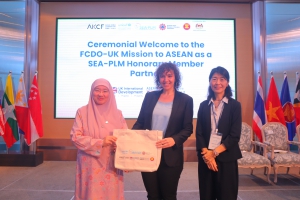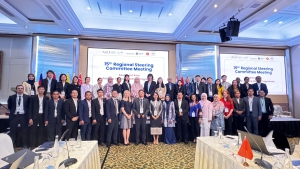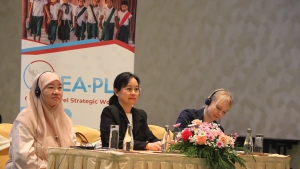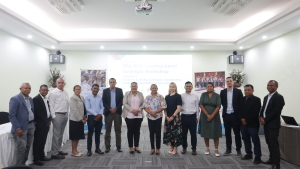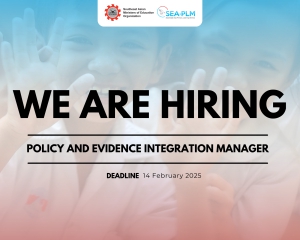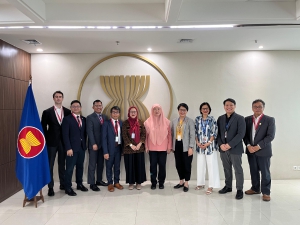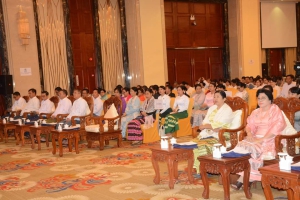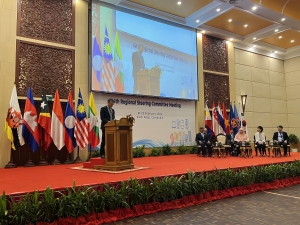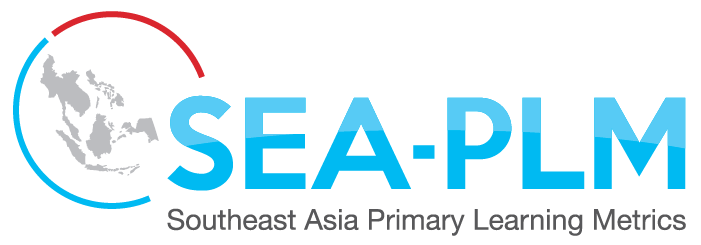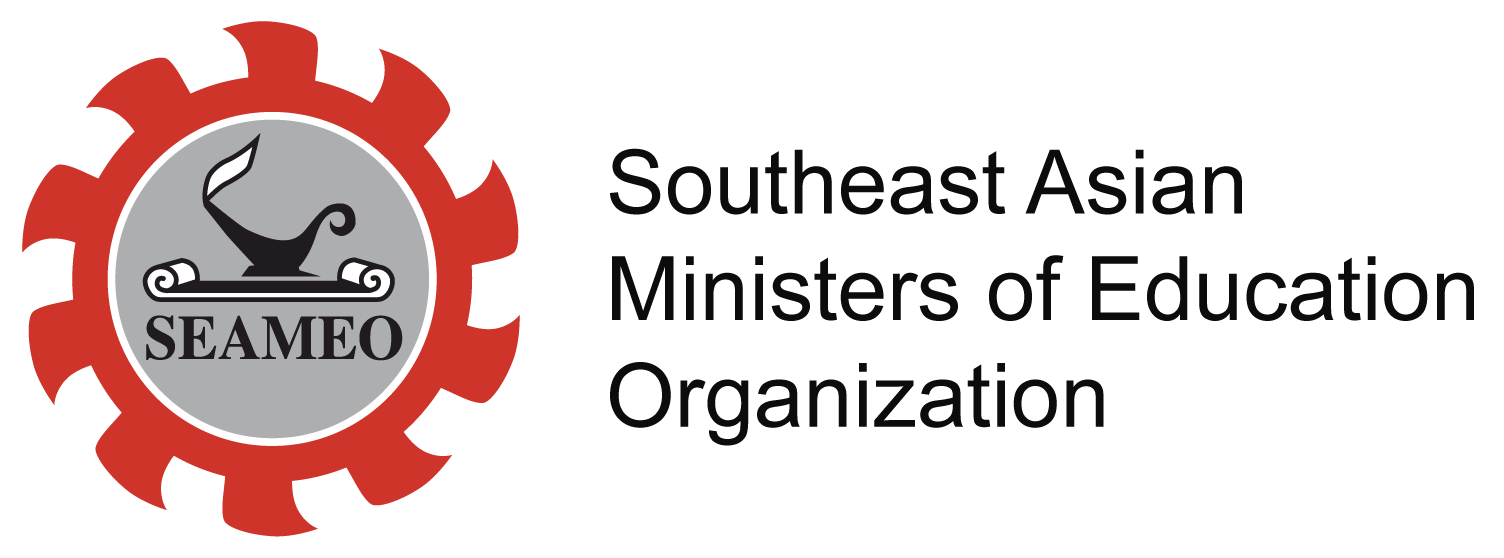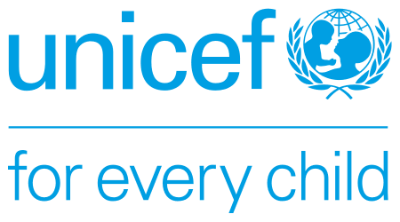SEA-PLM Welcomes FCDO as Honorary Member Partner through the ASEAN-UK SAGE collaboration
The Southeast Asia Primary Learning Metrics (SEA-PLM) programme, through its Co-Chairs, proudly welcomed the Foreign, Commonwealth and Development Office (FCDO) of the United Kingdom as its newest Honorary Member Partner during the 15th SEA-PLM Regional Steering Committee (RSC) Meeting held in Malacca, Malaysia on 28 April 2025.
FCDO was represented at the 15th RSC Meeting by Ms Isla Gilmore, Education Advisor at the UK Mission to ASEAN based in Jakarta, Indonesia. This partnership underscores a shared commitment to advancing evidence-based policies that improve learning outcomes and promote equity in education across the region. This marks a new milestone for SEA-PLM as it expands its network of regional and international partners supporting high-quality data collection, capacity building, and policy dialogue to ensure every child in Southeast Asia achieves foundational learning.
“We are pleased to welcome the UK as an honorary partner of the SEA-PLM programme,” said Datuk Dr Habibah representing SEAMEO. “Their commitment to gender equality and foundational learning aligns closely with our mission to foster inclusive and quality education systems in the region.”
The participation of the FCDO further amplifies SEA-PLM’s regional influence and reinforces its capacity to mobilize global support for Southeast Asian education reform. The SEA-PLM Programme is jointly governed by the SEAMEO Secretariat and UNICEF East Asia and Pacific Regional Office, and implemented in partnership with SEAMEO Member Countries, aiming to foster a culture of da0ta use to improve primary education systems and learning outcomes across the region.
–
The UK supports SEA-PLM through the ASEAN-UK SAGE Programme, funded by UK International Development.
|
|
|
|
|
|
|
|
SEA-PLM convenes the 15th Regional Steering Committee Meeting in Malacca
Education leaders, policymakers, and partners across Southeast Asia gathered in the historical city of Malacca, Malaysia, on 28-30 April 2025, for the 15th Regional Steering Committee (RSC) Meeting of the Southeast Asia Primary Learning Metrics (SEA-PLM) Programme. The three day event served as a platform for dialogue, reflection, and planning to drive the future of foundational learning in the region.
|
Ms. Isla Gilmore from the UK Mission to ASEAN representing UK’s Foreign, Commonwealth & Development Office (FCDO) Group photo with SEA-PLM Regional Secretariat. |
Ms. Bo-Ram Jang from the ASEAN-Korea Cooperation Fund (AKCF) Group photo with SEA-PLM Regional Secretariat. |
At the heart of this year’s meeting was the recognition of significant progress made in 2024 particularly the successful completion of the SEA-PLM 2024 Main Survey, which reached almost 40,000 students in more than 1,200 schools across seven participating countries. Moreover, the meeting discussed the interim results and began shaping plans for the upcoming release and dissemination of the full SEA-PLM 2024 finding later this year. The meeting centered on post-2024 action plans focusing on data analysis, dissemination, and utilization of evidence in line with the objectives of the latest programme strategy, Initiative 2: Evidence-to-Policy linkages.
The meeting brought together core member countries, honorary members, and key regional partners. Among the distinguished participants were Ms Isla Gilmore from the UK Mission to ASEAN under theForeign, Commonwealth & Development Office (FCDO), Ms Amalia Serrano and Mr Muhammad Dika from the ASEAN Secretariat, and Ms Bo-Ram Jang from the ASEAN-Korea Cooperation Fund (AKCF). This year’s meeting was further enriched by the presence of Her Excellency Fadhlina Sidek, Malaysia’s Minister of Education, who reaffirmed Malaysia’s dedication to foundational learning.
Her Excellency Fadhlina Sidek, Minister of Education Malaysia, joined the Regional Steering Committee Meeting in Malacca
The presence of both long standing and newly engaged partners - such as the AKCF and UK’s FCDO - demonstrated growing international commitment to SEA-PLM’s mission. AKCF was formally recognized during the meetings for its continued support in advancing the programme’s regional impact and sustainability. While the UK government was officially welcomed as a new regional partner supported under the ASEAN-UK SAGE programme. These relationships were strengthened through a ceremonial welcome and strategic bilateral meetings throughout the event.
Another highlight of the RSC meeting was school visits to Sekolah Kebangsaan Paya Rumput and Sekolah Jenis Kebangsaan (C) Wen Hua where participants engaged directly with Malaysian students and teachers. The participants observed classroom activities, engaged in an open dialogue with educators and learners.
|
|
|
Participants visited Sekolah Kebangsaan Paya Rumput and Sekolah Jenis Kebangsaan (c) Wen Hua to observe classroom practices and engage in meaningful dialogue with teachers and students
As the meeting concluded, a clear message emerged: foundational learning must remain a top regional priority. DatukDr Datuk Habibah, SEAMEO Secretariat Director, praised the collective achievements and called on all stakeholders to maintain momentum as the program transitions into its next phase. This includes the upcoming release of the 2024 regional report in November and the strategic preparations for the third round of assessment, SEA-PLM 2029.
Looking ahead, the SEA-PLM Regional Secretariat sets to convene the 16th RSC Meeting in 2026, hosted in collaboration with the Ministry of Education and Training of Viet Nam.
|
|
|
|
|
|
|
|
SEA-PLM 1st Country-level Strategic Workshop to advance Initiative 2 kicks off in Lao PDR
The SEA-PLM Regional Secretariat and the Lao PDR National team hosted the 1st SEA-PLM country-level strategic workshop under Initiative 2: Evidence-to-policy linkages on March 18 - 20, 2025 effectively advancing the use of evidence to inform policies and practices in basic education. This workshop signified an essential step forward in the country’s commitment to improving foundational learning outcomes. One of the workshop’s notable moments was the high-level dialogue between SEA-PLM representatives and Dr. Dalavone Kitiphanh, Vice Minister of Education and Sports. The meaningful dialogue centered around Lao PDRs’ dedication to leveraging assessment data for informed policy decisions to enhance educational quality and the use of SEA-PLM through Initiative 2 in contributing to this commitment.
Group photo of SEA-PLM representatives, partners, and Ministry Officials led by Dr. Dalavone Kitiphanh, Vice Minister of Education and Sports Lao PDR
Mrs. Manoly Dongvan, Deputy Director General, Research Institute of Educational Sciences, Ministry of Education and Sport, in her opening remarks, expressed Lao PDR’s steadfast commitment to foundational learning. By participating in the SEA-PLM assessments conducted in 2019 and 2024, Lao PDR demonstrates its dedication to evaluating and improving educational outcomes. Through its active involvement in SEA-PLM, Lao PDR reaffirms its commitment to foundational learning and emphasizes the importance of sustained investment in children’s education, ensuring quality education for future generations. During the session, the SEAMEO Secretariat represented by Datuk Dr Habibah expressed gratitude for Lao’s successful completion of the SEA-PLM 2024 Main Survey, emphasizing the critical role of the 2024 data in assessing learning recovery post Covid-19 and developing targeted interventions.
Throughout the first day, participants from various units within the Ministry and other partners actively engaged in a robust discussion on strengthening reforms through leveraging data insights and evidence from SEA-PLM and other sources. This boosted the country’s national action plan to focus on post-2024 activities of data analysis, dissemination, and formulation of effective interventions informed by the upcoming results of the 2024 survey.
Mr Alejandro Ibanez, Programme Manager SEA-PLM Programme. facilitated the discussion with the participants during the workshop
On the second day, Dr. Wong Yew Leong from the National Institute of Education, Nanyang Technological University, guided participants through an interactive session focused on the completion of Module 2 of the SEA-PLM System-Level Questionnaire, centered on curriculum and quality assurance in primary education. This insightful session unpacked complex themes such as teacher training, differentiated curriculum strategies, and effective resource allocation, highlighting how teacher motivation, cultural contexts, and school leadership profoundly influence learning outcomes. Participants enthusiastically exchange insights and perspectives, exploring comprehensive strategies to align curriculum standards with quality assurance practices.
Dr Wong facilitated the discussion on module 2 of the SEA-PLM System-Level Questionnaire
The workshop concluded with a productive bilateral meeting between Lao PDR’s national team and the SEA-PLM Regional Secretariat, mapping out clear, actionable plans for sustained collaboration and policy action.
This workshop not only strengthened Lao PDR’s capacity to harness SEA-PLM data effectively but also to amplify ongoing regional efforts to ensure that every child attains foundational skills essential for lifelong learning and development.
From Data to Impact: SEA-PLM advances collaboration with the Philippines to promote foundational learning through evidence-to-policy linkage
The Southeast Asia Primary Learning Metrics (SEA-PLM) Regional Secretariat convened the 1st country-level strategic workshop in the Philippines from March 3-4, 2025. This event explored how data-driven insights can inform and strengthen national education policies in the Philippines.
SEA-PLM courtesy visit to Secretary Sonny Angara at the Department of Education.
The workshop opened with a courtesy visit to the Office of the Secretary of Education, His Excellency Sonny Angara, who underscored the Philippines government’s commitment to using data to drive education reforms. The visit set the stage for discussions on how SEA-PLM data can support to generate insights, improve foundational learning, and educational policy priorities.
The Philippines is participating in the second round of assessment SEA-PLM 2024, places the country in a stronger position to report on its achievement of the UN SDG 4.1.1b indicator. With its intensified education reforms, post-2024 collaboration proves critical to ensure that the evidence translates into meaningful actions to sustain the reform and policy improvements.
SEA-PLM Project Manager Mr Alejandro Ibanez explained the objective of SEA-PLM Country Level Workshop in the Philippines.
At the workshop, the SEA-PLM Regional Secretariat highlighted a key shift in the programme’s direction—moving beyond data collection to actively integrating assessment insights into policy reform. Known as Initiative 2: Evidence-to-Policy Linkages, this approach ensures that SEA-PLM findings directly inform national education strategies, strengthening learning outcomes in the Philippines and across Southeast Asia.
The Philippines’ continued participation in SEA-PLM underscores its commitment to leveraging international assessments for policymaking. With the country set to assume the ASEAN Chairmanship in 2026, it has a unique opportunity to drive regional education reform discussions centered on the use of data to advance evidence-informed policymaking.
Under Initiative 2, SEA-PLM supports DepEd’s push for data-driven decision-making, aligning with its focus on transparency and feedback loops. This includes refining curriculum development and teacher training using SEA-PLM insights, addressing learning gaps through targeted interventions, and embedding an equity focus to support marginalized students.
Key takeaways from the two-day workshop will feed into major regional education dialogues, including the 15th SEA-PLM Regional Steering Committee Meeting (April 2025) and the Foundational Learning Forum (May 2025). These events will shape how SEA-PLM data is utilized—not just in the Philippines, but across Southeast Asia—to drive meaningful education reforms forward.
Datuk Dr Habibah and also Secretary Sonny Angara at the Department of Education.
In November 2025, the official SEA-PLM 2024 Report will be launched, with participating countries presenting their policy responses based on the findings. For the Philippines, this will be a defining moment to showcase how data has driven meaningful reforms in foundational learning.
The SEA-PLM Country Workshop in the Philippines, along with similar workshops happening in other countries, marks a milestone in the journey towards evidence-based education reforms in the region.
SEA-PLM in Timor-Leste: Supporting improvement in learning outcomes
Timor Leste has unlocked a new opportunity to gain valuable insights into foundational learning across the country by joining the SEA PLM 2024 assessment cycle. With the upcoming release of results, SEAMEO Secretariat and UNICEF EAPRO with support of the ASEAN-UK Supporting the Advancement of Girls Education (SAGE) Programme, engaged the education stakeholders including Her Excellence Ms. Dulce de Jesus Soares, Minister of Education of Timor-Leste, in a strategic workshop in Dili on 24-25 February 2025.
The SEA-PLM initiative 2 is a forward-looking framework designed to ensure that learning assessment data is not only collected but also effectively used to drive systemic improvements. The initiative promotes country-specific insights tailored to Timor-Leste’s education landscape and enhances institutional capacity to use data for decision-making and policy formulation. It facilitates system and school-level collaboration to address foundational learning challenges while also developing monitoring mechanisms to track progress and ensure accountability in implementing reforms. Under this framework, Timor-Leste aims to establish national mechanisms to support the sustained implementation of SEA-PLM and strengthen its education policies based on real-world evidence.
The Strategic workshop initiated the action of evidence-to-policy linkages building upon data gathered from the systematic monitoring of student learning among Grade 5 students in basic literacy and numeracy. This initiative aims to accelerate evidence-based reforms and action in the country’s education system, focused on foundational learning. This initiative, leveraging on survey data, ensures that the results translate into meaningful policies that drive real improvements in the learning experience of children across Timor-Leste.
Sharing session with SEA-PLM Country Workshop participants in Timor-Leste
The discussion articulated the need to develop and formulate a national action plan to effectively utilize SEA-PLM data to shape national education strategies and align future SEA-PLM support and interventions with national education priorities. Additionally, the SEA-PLM Regional Secretariat engaged the Ministry of Education in in-depth technical discussions on the SEA-PLM compendium of items in reading and math, preliminary national outcomes of the 2024 main survey, and discussions on the system-level questionnaires.
SEA-PLM Secretariat, UNICEF and SEA-PLM National Team in Timor-Leste gave opening and objective of SEA-PLM country level workshop
The workshop concluded with a clear roadmap for Timor-Leste’s education stakeholders. The Ministry of Education committed to explore the establishment of a national steering committee and develop national action plans to inform ways forward on the sustained implementation of SEA-PLM and advancement of foundational learning. It will expand capacity-building programs for educators and policymakers to better analyze and utilize data, engage in continued dialogue with regional partners to strengthen technical and institutional collaboration, and monitor progress to ensure that the reforms yield tangible improvements in student learning outcomes. The success of this initiative will be measured not just by the data collected but by the policies enacted and the lives transformed through a more inclusive and effective education system.
SEA-PLM Highlighted in the EDCOM II’s Year Two Report on the State of Philippine Education
The Southeast Asia Primary Learning Metrics (SEA-PLM) continues to make a significant impact, with its data and insights increasingly recognized by the Ministry of Education in the Philippines. The latest findings from SEA-PLM have been acknowledged as a crucial resource for shaping education policies, providing regionally comparable benchmarks that help guide national interventions. In the Philippines, the program's evidence-based approach has been instrumental in sporting ongoing reform aimed at addressing learning gaps and improving foundational learning outcomes.
The EDCOM II report highlights pressing challenges in the Philippines' education system, particularly in the early grades. Learning gaps have persisted, with many Grade 3 students performing one to two years behind curriculum expectations. SEA-PLM 2019 policy recommendations emphasize the need to guarantee a solid start in primary education through learning progression for all children, especially the disadvantaged. Data further reveal that poor early childhood care and nutrition are key factors affecting student performance, with malnutrition and stunting limiting cognitive development and learning potential.
Unpacking the structural roots of educational challenges, The Second Congressional Commission on Education (EDCOM II) released its Year 2 report calling for realignment of educational priorities toward the foundational stages of learning. Titled, “Fixing the Foundation: A Matter of National Survival”, the report sheds light on the policy gaps that hinder educational progress in the Philippines. Consolidating data and information on the quality of foundational learning outcomes, SEA-PLM serves as a useful resource that provides critical evidence for policymakers and educators in the country.
SEA-PLM also reveals compelling findings on resources, showinghat many students learn in overcrowded classrooms or inadequate facilities. Equity issues were also explored where SEA-PLM 2019 revealed that the case of bullying is prevalent in the country, underscoring the need for a positive learning environment to support children’s well-being and safety in schools.
To gain a deeper understanding of the finding and recommendations from EDCOM II, you can download the full report here
https://edcom2.gov.ph/media/2025/01/EDCOM-2-Year-2-Report-Fixing-the-Foundations-2025.pdf
SEA-PLM stands ready to work with the Philippines Department of Education to improve foundational learning outcomes and enhance the basic education quality and equity for all children in the Philippines.
Hiring: Policy and Evidence Integration Manager
The SEA-PLM Regional Secretariat is committed to working in accelerating evidence-based reforms and actions to improve foundational learning outcomes in the region through the SEA-PLM programme.
In 2025, SEA-PLM aims to strengthen its regional- and country-level presence through impactful and relevant initiatives informed by the SEA-PLM data and evidence. The Policy and Evidence Integration Manager will take the lead amplifying SEA-PLM’s efforts to advance data-driven and evidence-based informed policymaking and practices at the primary level and above to advance basic education standards and frameworks in the ASEAN region.
The position will facilitate actions at national and regional levels that aim to synthesize evidence from SEA-PLM surveys, methodology, and other existing and new learning evidence to inform policy development and systems improvement. This role ensures that the programme’s data-driven insights are effectively communicated, disseminated, and integrated into regional and national education strategies, with a focus on promoting equity, quality, and inclusiveness in learning opportunities. The position will be part of the SEA-PLM Regional Secretariat, housed within the SEAMEO Secretariat reporting directly to SEAMEO Secretariat’s Deputy Director for Programme and Development, and providing key updates to the Co-Chairs, led by the SEAMES Director and UNICEF EAPRO’s Regional Education Advisor, working in close collaboration with the SEA-PLM Secretariat (SEAMES and UNICEF EAPRO). The position is stationed at the SEAMEO Secretariat office in Bangkok, Thailand.
The Policy and Evidence Integration Manager will be the lead officer within the SEA-PLM Regional Secretariat to deliver and implement the SEA-PLM component under the EmpowerSAGE project. In collaboration with partners and the Secretariat, the Manager will lead and supervise the design, implementation, and reporting on the supported work across SEAMEO Member Countries under the Initiative 2 framework.
Application requirements
- Accomplished application form
- Curriculum Vitae
- Cover Letter with expected monthly salary (in USD)
Application Form and Job Description you can download below
Application_Form_PEI_Manager.docx
TOR_Policy_and_Evidence_Integration_Manager.pdf
Send your complete requirements to This email address is being protected from spambots. You need JavaScript enabled to view it. by 14 February 2025
13th ASEAN-SEAMEO Secretariats Coordination Meeting Boosts Regional Education Cooperation
On January 15, 2025, the 13th ASEAN-SEAMEO Secretariats Coordination Meeting took place at the ASEAN Secretariat Office in Jakarta, Indonesia. The gathering served as a significant platform for ASEAN and SEAMEO to discuss advancements in the region’s education agenda and review key initiatives, such as the outcomes of the annual regional meetings in education and related activities.
The meeting delved into several pivotal topics including updates from both the ASEAN and SEAMEO Secretariats. The discussion featured detailed presentations on the progress of the SEA-PLM programme, the ASEAN-UK SAGE Programme, SEA-DREAM Programme, and the Roadmap for the ASEAN Leaders’ Declaration on Early Childhood Care and Education (ECCE) in Southeast Asia. The meeting was attended by Ms. Rodora Turalde-Babaran, Director of the ASEAN Secretariat’s Human Development Directorate, Ms Amalia Serrano, Senior Officer Education Youth and Sports Division ASEAN Secretariat, Mr Muhammad Dika Harliadi, Officer at the Education, Youth and Sports Division ASEAN Secretariat, Datuk Dr. Habibah Abdul Rahim, Director of SEAMEO Secretariat, Professor Vina Adriany, Ph.D., Director of SEAMEO CECCEP, Mr John Arnold Siena, Deputy Director for Programme and Development of SEAMEO Secretariat, Mr Emiljohn Santillas, Policy and Planning Specialist, Alejandro Ibanez, SEA-PLM Programme Manager, and Mr Ansgar Shaefer, Head of Programme Developing Research Excellence and Mentorship in Southeast Asia (SEA-DREAM).
The ASEAN-UK SAGE initiative focuses on advancing girls’ education by addressing foundational learning gaps, supporting out-of-school girls, and promoting digital skills, with successful pilot project engagements in Cambodia, Lao PDR, and Timor-Leste. Similarly, the SEA-DREAM Programme, supported by Wellcome Trust and the UK Foreign, Commonwealth & Development Office, aims to enhance health and climate-related research excellence in Southeast Asia through mentorship, regional collaboration, and the development of future research leaders. The meeting also underscored the progress on the Roadmap for the ASEAN Leaders’ Declaration on ECCE, a critical step towards ensuring high-quality early childhood care and education across Southeast Asia, through multi-stakeholder collaboration.
During the session, Mr Alejandro Ibanez provided an overview of the SEA-PLM programme's key achievements and ongoing initiatives. SEA-PLM serves as Southeast Asia’s regional large-scale learning assessment mechanism, aligned with SDG 4.1.1 indicators, to monitor and enhance education quality and equity across SEAMEO Member Countries.
Significant milestones highlighted at the meeting included the successful completion of the SEA-PLM 2024 Main Survey, which involved extensive data collection from students, parents, teachers, and school principals across participating countries. To ensure inclusivity, assessment materials were translated into 11 national languages. Another important advancement was the establishment of the SEA-PLM Technical Experts Network, designed to strengthen quality assurance and regional expertise.
In the upcoming months, SEA-PLM will organize country-level workshops aimed at supporting governments in transforming SEA-PLM data into effective educational policies. Additionally, the highly anticipated results of the SEA-PLM 2024 assessment are scheduled for release in the fourth quarter of 2025.
Looking forward, the SEA-PLM team presented their strategic vision to maximize the programme's impact by translating assessment findings into actionable policy recommendations, enhancing technical capacity-building, and securing long-term programme sustainability through improved governance and resource mobilization.
The meeting emphasized the need for stronger collaboration, leveraging SEAMEO’s reach and ASEAN’s convening power, highlighting complementarities in the delivery of the programmes. The collaboration is particularly needed as Malaysia takes the 2025 ASEAN Chairmanship with a focus on inclusivity and sustainability. Both parties agreed to intensify the partnership, optimizing existing resources at the regional-level from dialogue partners such as the Aus4ASEAN Futures which is a new flagship initiative to advance the Comprehensive Strategic Partnership (CSP) between ASEAN and Australia and the EU-ASEAN Sustainable Connectivity Package – Higher Education Programme (SCOPE-HE) which represents a significant step forward in EU-ASEAN cooperation in the region.
The 13th ASEAN-SEAMEO Secretariats Coordination Meeting reaffirmed both organizations' commitment to strengthening education collaboration and addressing regional challenges. By advancing foundational learning, research excellence, and early childhood education, ASEAN and SEAMEO continue to drive meaningful progress toward a more inclusive and equitable education landscape in Southeast Asia. The next coordination meeting will be hosted by the SEAMEO Secretariat scheduled in 2026.
Myanmar progresses with SEA-PLM 2024 Main Survey
The Southeast Asia Primary Learning Metrics (SEA-PLM) 2024 main survey officially commenced in Myanmar, marking a significant step forward in Myanmar’s educational improvement and policy development. The SEA-PLM 2024 survey is a critical initiative that evaluates the literacies in reading, writing, and mathematics of grade 5 students across Southeast Asia. By focusing on foundational learning and contextual factors, the survey aims to paint a comprehensive picture of students' learning outcomes and the overall educational landscape.
Key tools for the assessment include cognitive tests and questionnaires for students, parent questionnaires to capture family and household contexts, teacher and principal questionnaires to understand school level teaching practices and challenges. In Myanmar, the survey covers approximately 5,866 students across 192 schools, with 5,858 parents to gather household perspectives, and 490 teachers.
The SEA-PLM is a tool for evidence-based educational reform. By gathering extensive data across multiple countries including Myanmar, it enables policymakers in the region to identify gaps in learning outcomes, shape targeted interventions, develop policies aligned with both national and regional educational priorities.
For Myanmar, this year’s survey comes at a critical juncture as the country aims to align its educational standards with ASEAN-wide benchmarks. The initiative underscores Myanmar’s commitment to ensuring inclusive and equitable quality education for all children, a key target under Sustainable Development Goal 4.
Behind the scenes, the successful rollout of SEA-PLM 2024 is the result of meticulous preparation. The Ministry of Education has worked closely with education officers, schools, and regional stakeholders to finalize survey protocols and procedures. Training of test administrators and school coordinators, as well as extensive planning sessions, have ensured that local educators are well equipped to administer the assessments efficiently.
As the SEA-PLM 2024 survey progresses, Myanmar remains focused on the bigger picture. Post-2024, the Ministry plans to analyze the data vigorously and disseminate findings to policymakers and educators nationwide.These insights will inform Myanmar's broader education strategy aimed at improving education outcomes.
|
|
|
|
|
https://x.com/SEAPLM_S |
|
|
SEA-PLM 2024 in action: Transforming education systems through regional collaborations and partnerships
Regional Steering Committee in Siem Reap, Cambodia
The year 2024 was marked by monumental achievements, from successful data collection in participating countries to high-level regional engagements that shaped the future of the programme in enhancing education quality in the region. With support from the ASEAN Secretariat, ASEAN-Korea Cooperation Fund (AKCF), the UK government under the ASEAN-UK SAGE programme, key regional partners, and the collaborative efforts among participating countries, SEA-PLM continues to demonstrate its commitment to improve foundational learning through regionally comparable data and learning assessment evidence.
One of this year's highlights was the successful implementation of the SEA-PLM 2024 main survey. This initiative gathered robust data on student learning outcomes, starting with the first batch of countries, Lao PDR, the Philippines, and Viet Nam, followed by the second batch of countries Cambodia, Malaysia, Myanmar, and Timor-Leste. This effort reflects the SEA-PLM’s commitment to generating comparable data and indicators and monitoring foundational learning outcomes through strong collaboration with national teams across the participating countries.
At the governance level, the programme convened the 14th SEA-PLM Regional Steering Committee Meeting. The high-level meeting brought together high officials and key representatives from SEAMEO Member Countries to review progress, share programme insights, and strengthen dialogue in order to collectively achieve SEA-PLM’s mission for all children in the region.. The regional meeting was followed by the High-Level Regional Conference on Foundational Learning culminating with a presentation of the regional priorities for action on foundational learning, in line with strategies outlined during SEAMEO’s 6th Strategic Dialogue for Education Ministers in February 2023.. Looking ahead, the regional discourse on foundational learning is expected to be enriched with the anticipated launch of the SEA-PLM 2024 results in 2025.
Minister from Ministry of Education Cambodia Mr Hangchuon Naron, Korean Ambassador Mr Lee Jang-keun, Datuk Dr Habibah and Ms Mitsue as Co-Chairs, and seven participating countries (Cambodia, Lao PDR, Malaysia, Myanmar, Philippines,Viet Nam, and Timor-Leste)
To further its mission of advanced foundational learning in the region, SEA-PLM launched the Technical Experts Network (TEN) in Bangkok, Thailand. This inaugural meeting brought together regional and international experts from academic institutions, dedicated to leveraging SEA-PLM’s extensive data to drive transformative changes in foundational learning. Experts from Nanyang Technological University, Universiti Pendidikan Sultan Idris Malaysia,Curriculum Development Division Ministry of Education Malaysia, University of the Philippines – Diliman, Philippine Normal University, SEAMEO Regional Center for QITEP in Mathematics, SEAMEO CECCEP, Taylors University Lakeside Campus Malaysia, The Chinese University of Hong Kong, Nanyang Technological University, National University of Singapore were among the attendees.
Experts convene at the SEA-PLM Technical Expert Network Meeting to provide valuable insights and guidance for the programme, strengthening its approach to improving education systems and learning outcomes across Southeast Asia
Building on this momentum, The SEA-PLM Regional Secretariat, Co-chaired by the SEAMEO Secretariat and UNICEF East Asia and Pacific Regional Office (EAPRO), held an Extraordinary Session: Regional Consultation on 23 - 24 October 2024 in Bangkok. Representatives from participating countries, the ASEAN Secretariat, and AKCF gathered to reflect on the program’s achievements and outline the roadmap for SEA-PLM post-2024. Key discussion included national strategies for resource mobilization, partner engagement, and policy-oriented actions on the use of survey findings to improve education systems in the region.
|
|
|
Representative of ASEAN Korea Cooperation Fund, ASEAN Secretariat, and also Ministry of Education from participating countries participated in the dialogue to discuss the programme achievement and reflection
What’s next for SEA-PLM?
Building on the momentum of 2024, SEA-PLM plans to organize a follow-up regional event on foundational learning in 2025. Following the insights and key points shared during the extraordinary session: regional consultation on the SEA-PLM programme, participating countries are encouraged to maintain momentum and translate the regional agreements into national-level plans of action. In early 2025, the SEA-PLM Regional Secretariat, in collaboration with key partners, will conduct a series of country-level workshops. These workshops will provide a platform for further collaboration enabling countries to transform SEA-PLM data, findings, and methodologies into actionable insights and strategies for enhancing educational outcomes for all children.
|
|
|
|
|
https://x.com/SEAPLM_S |
|
|

